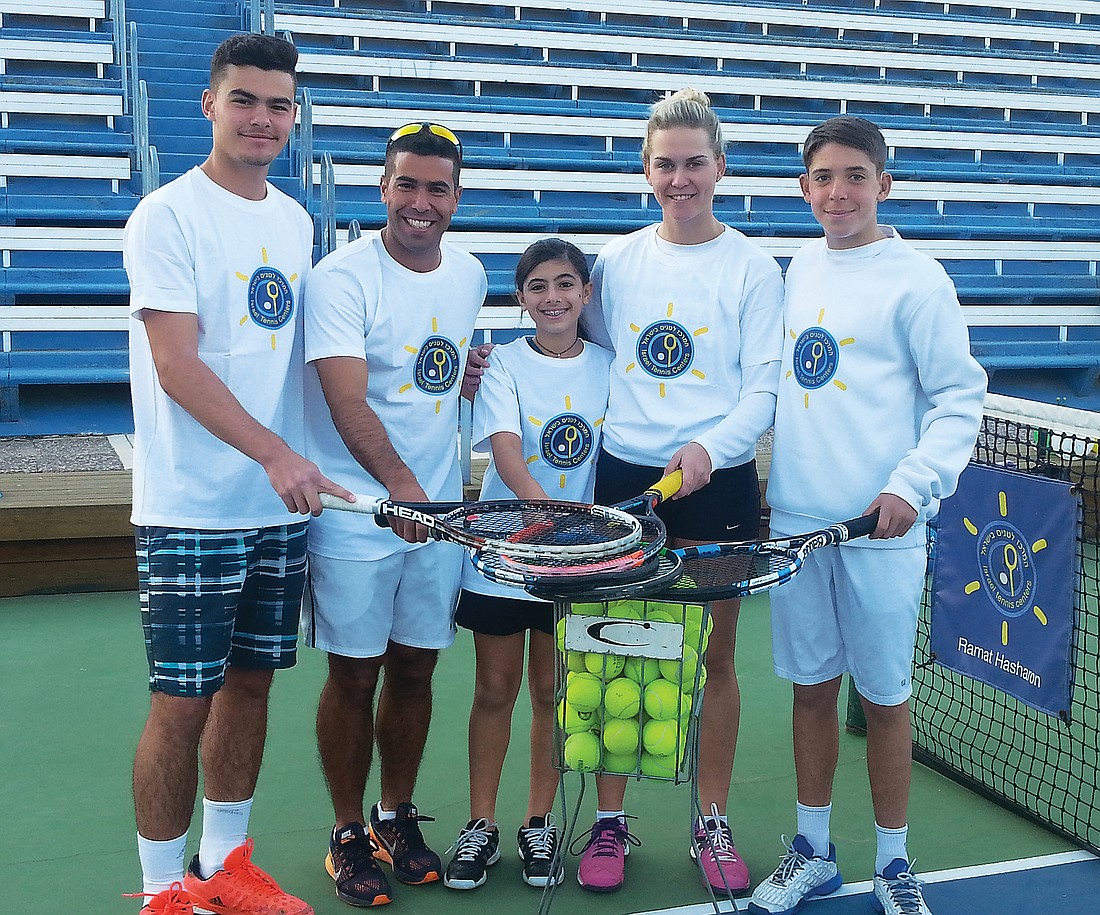- November 23, 2024
-
-
Loading

Loading

In 1976, a group of friends decided tennis could be a ticket to success for some children in Israel.
Now, 41 years later, the group has helped make life just a little bit better for more than a half a million children — about 20,000 a year.
Israel Tennis Centers is now the largest social-service agency for children in Israel. At the time of its inception, tennis wasn’t really popular in Israel. But the founders were passionate about tennis, so they persevered.
“We help children through the medium of tennis to learn life skills and to help them become happy and successful and productive young people and eventually adults,” said Richard Weber, global director of marketing for ITC.
Fourteen centers throughout Israel serve children aged 5 to 18. The centers are open to children, regardless of religion or economic circumstance.
On March 15, four Israel Tennis Centers players and their coach will host an exhibition and share their stories at the Longboat Key Club. The foundation first visited Longboat in 1988 and continues to do so as a fundraising tradition. The goal is to let people know its mission goes beyond tennis.
Thirteen of the 14 centers are located in areas of Israel facing economic challenges, Yoni Yair, vice president of development, said. It was a strategic move to help improve the quality of life in those neighborhoods and keep the youngsters off the street.
“Throughout these years, these tennis centers became the flowers of these cities,” Yair said.
The oldest team member and captain, Alona, was born in Haifa, Israel. Eventually, Alona’s father began working abroad due to financial problems. Her mother worked in a candy story and cleaned their 23-story building to help ease the financial burden. Alona helped her mother clean.
When she turned 10, Alona started going to an Israel Tennis Center, which she said helped her deal with life’s difficulties — “how to deal with pressure, how to be a better person in life, now and later, how to never give up and to keep going, keep doing what you’re doing,” she said.
The other team members have similar stories. Their surnames were withheld, at the request of organizers, for security reasons.
Nitzan, 12, the youngest player coming to Longboat, is wise beyond her years.
Nitzan started going to an Israel Tennis Center site when she was 6 and knows that every religion is welcome.
“In my group, we celebrate together the holidays of every religion,” she said.
The centers hold joint sporting activities for Jewish, Arab, Druze and Bedouin children through coexistence programs. When the children are interacting, that coexistence spreads. Weber recalled an instance during a kindergarten coexistence program, in which parents brought their children, and stayed to watch.
“And they began to talk and to interact, so you not only have a coexistence experience on the court with the children, but you start to have the same thing with the parents off the court. It’s an extraordinary thing to see,” Weber said.
Weber said he hopes that becomes a blueprint for peace.
The organization works to bring something positive into the children’s lives, and it’s bearing out in the stories the players share.
Gabi, 15, uses a hearing aid. He said the center in Jerusalem gave him confidence not just on the courts but in life.
Shadi, a 17-year-old from Rahat, began going to the tennis center because his father wanted him off the streets. He said his experience has taught him to be positive. A tennis racket and ball can bring all the religions together, Shadi said.
The coach, Noam Yitzhaki , 28, began going to the tennis centers when he was 8. He lived in an underprivileged city bordering Lebanon. He recalls spending many hours a day in a bomb shelter during turmoil in Lebanon, and his parents wanted him to find another safe place to go. That’s when he went to the nearby tennis center. There, he fell in love with tennis and received tutoring he needed for school. Today, Noam is a student at Israel’s Wingate Institute studying physical education.
“My coach over there, he used to tell me always something I remember,” he said. “I remember he used to [say] if you believe you achieve.”